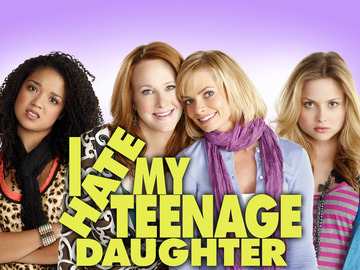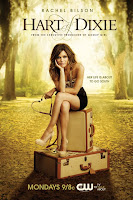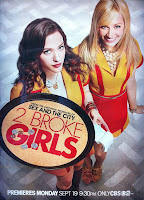 |
| No. |
Aside from thinking about how Monk could’ve been a really good show if it weren’t so sexist and racist, and how Roseanne got seriously crappy in its last two seasons, and how Ally McBeal might be the most horrendous televised display of faux-feminism slash enlightened sexism I’ve ever seen, I’ve spent some time going over these new Fall television shows by checking out their Web sites, reading their plot summaries, and—my favorite part—looking at how The People In Charge chose to market them. I noticed an overall trend: in addition to the increase in shows starring women, we’re about to be treated to a whole litany of Man-Shows.
When I say “Man-Shows,” I don’t mean television programming that merely stars men. I’m talking about some serious “Lest Anyone Forget—What With All These New Shows Starring Women—WE ARE STILL VERY POWERFUL MASCULINE MEN ON TV WE OWN EVERYTHING NO SERIOUSLY ROAR” Neanderthal action. I find it simultaneously hilarious and unacceptable. As always, both men and women get to see themselves as caricatures and stereotypes—courtesy of society’s regressive gender constraints—portrayed in television, particularly on network TV. Some of the more offensive “Man-Shows” this season include, Man Up!, How to Be a Gentleman, and Last Man Standing. In fact, NPR just published an excellent piece by Linda Holmes titled, “Congratulations, Television! You Are Even Worse at Masculinity Than Femininity!” in which she asks the following:
… Where, on television, are the men who both like football and remember birthdays? Where are the men who can have a highly insightful drink-and-talk with friends? Where are the men who are great dads, great husbands, great boyfriends? Where are the men who are dedicated to important jobs? Where are the men who aren’t seeking reassurance about what it means to be men? Where are, in short, all the men I rely on in my day-to-day life?
I’m sure the male characters in these shows are total clichés portrayed in absolutes—or, as Holmes notes, “Men who are emotionally reactive … are weak; men who are emotionally inert … are clueless.” I also believe that the major force driving these narratives about manhood and masculinity is a direct result of our society’s fear and hatred of the feminine. In the very narrow worlds of film and television, isn’t it more often other men who label emotionally reactive men “weak,” … while women label emotionally inert men “clueless”? Men can’t win in these worlds; that’s certainly true. It starts at the beginning, with our collective call for boys to “stop acting like whiny little girls”—because, as boys and girls both learn, being a girl is The Worst.
My point? This very limited view of gender and gender expectations isn’t a new trend. And, while I agree with Holmes’ take in general, I don’t see these portrayals as having worsened in TV, either. I see them as possibly more overt this season, and I see the Man-Shows as an obvious reaction (i.e. backlash) against the increase in shows about women and the displays of femininity that accompany them. And if what Holmes says is in fact true, that “In both cases, women don’t want to have sex with them [weak and clueless men], even if they’re married to them,” I actually find it much easier to swallow than I do the Apatowian version of that story, where emotionally stunted man-children all across the globe end up living happily ever after (and sexually fulfilled) with Katherine Heigl and Elizabeth Banks.
Holmes also expresses concern over the “silly women” in Fall television but ultimately argues, “At least they are not presented as women who are being women incorrectly,” (you know, the way men are presented as being men incorrectly). I find that statement interesting. I mean, if you take a close look at the roles women play on these brand spankin’ new TV shows, the “at least women aren’t presented as being women incorrectly” argument doesn’t hold up. It’s funny, actually. Because the definitions of what these women are even allowed to be on television certainly trumps any notion of whether they’re being it correctly. (Besides, I’m about 175% sure that women judging women or men judging women for dressing too slutty or being bad moms/teachers/wives/sisters or gaining weight or not gaining weight or smiling or not smiling happens about three thousand times per episode. On each show.)
Here’s a list of woman-centered shows premiering September through November, along with the roles and/or occupations of the women (when I could find the information on the Web site): a murder witness (Ringer), a wife, career woman, and mom (Up All Night), a witch (The Secret Circle), waitresses (2 Broke Girls), Playboy bunnies (The Playboy Club), a teacher (New Girl), a homicide detective (Unforgettable), a vengeful woman (Revenge), beautiful detectives (Charlie’s Angels), an unmarried woman (Whitney), a homicide detective (Prime Suspect), flight attendants (Pan Am), a doctor (Hart of Dixie), a CIA agent (Homeland), clueless moms (I Hate My Teenage Daughter), a “crazy” health and beauty executive (Enlightened).
I look at this list, and my first instinct is to go, “Yay! Women get to be detectives, too!” And that’s certainly progress—if we’re comparing this Fall TV season to, like, the days of Leave It to Beaver. The rest of the roles on the list, with the exception of “doctor,” embody careers/roles traditionally held and/or performed by women. That isn’t to suggest anything inherently negative about those roles; I’m merely stating a fact. I wouldn’t doubt that most of the women characters in the male-dominated fields (homicide detective, doctor, CIA agent) also get the wonderful bonus of being The Lone Woman, spending 90% of her time surrounded by men (Smurfette Principal, anyone?) …
Here’s a list of man-centered shows premiering September through November, along with the roles and/or occupations of the men (when I could find the information on the Web site): a former CIA agent (Person of Interest), a mysterious billionaire (Person of Interest), a surgeon (A Gifted Man), a writer (How to Be a Gentleman), a personal trainer (How to Be a Gentleman), a marketing director (Last Man Standing), an insurance salesman (Man Up!), a homicide detective (Grimm), a mayor (Boss), a soldier (Hell on Wheels).
Can I be a mysterious billionaire? I want that role. Or Mayor. Can I be Mayor? Ha. I think I need to step back. First, it stinks that TV wants to get in on that whole man-child bankability thing that the movie industry has relied on since, what, Animal House? But the man-child isn’t really a new thing for TV, is it? (See Friends, Arrested Development, The Big Bang Theory, Parks and Recreation, My Name Is Earl, Monk, et al.) Instead, the novel thing for Fall TV appears to be the man-child’s sudden mission to Reclaim His Masculinity—a popular yet very regressive and harmful version of masculinity that, let’s face it, kept George W. Bush in the White House for eight years.
















Great analysis, BitchFlicks. I agree that quality is not quantity and that most of the new shows disappoint. I cannot even put into words how frightened I am that someone greenlit Pan Am and The Playboy Club—who thought that was a good idea? I wrote on I WILL NOT DIET (http://www.iwillnotdiet.com/?p=744) that I’m happy about Cat Denning appearing in 2 BROKE GIRLS since she has a real body (not anorexic and not obese), but I’m also disappointed that her show is less than mediocre and probably won’t last the season. Time to start writing our own shows, I guess.
In a quick defense of Up All Night (I am as frustrated with the rest of the new shows as you are) — the main character might be a mother, but she’s successfully balancing motherhood and a career (without the mysticism of How Does She Do it), her husband is hardly a man-child, the woman she works for still seems a bit of a caricature, but the show more than passes the Bechdel test, and when I consider the first season of Parks & Rec… Up All Night has so much promise.
Excellent analysis, Steph.
I can’t help but look at the fall lineup and think about how women writers in television have lost ground (TV is so much better for women, blah blah), and how that fact has to explain at least some of this regression/backlash. Here’s a particularly striking quote on the matter from an AlterNet article (http://www.alternet.org/story/152473/why_is_tv_suddenly_overstuffed_with_buxom_bunnies,_sexy_stewardesses,_and_charlie%27s_angels?page=entire):
“In the 2006-2007 television season, 35 percent of the writers of broadcast network, prime-time programs were women, according to an annual study by San Diego State University’s Center for the Study of Women in Television and Film. In the 2010-2011 season, that number had dropped by more than half, to 15 percent. “
Another blow to the idea of progress.
On a lighter note, the line “So I get my news from Twitter, my feminism from Blogs, and my TV from 1995” made me LOL. I think you’re doing it right.
I had a similar reaction to the new fall shows, though I expressed it more succinctly and less articulately.
HAHAHAHAHAHA — Rainicorn, that’s the best thing EVER. Seriously, why is this list of shows so WHITE. And where are the LESBIANS?
http://feministing.com/2011/09/29/glaad-report-tv-got-less-lgbt-this-year/
http://msmagazine.com/blog/blog/2011/09/28/where-are-all-the-sitcom-lesbians/
…since she has a real body (not anorexic and not obese)
WTF is up with the body shaming?
^What anon said. Umm, obese women and women suffering from anorexia ARE WOMEN. Period.
Back to the topic at hand… Ugh, just ugh. The whole retro-1960/70s shows (and movies, like the new X-Men) really bug me. It’s, as was pointed out, “nostalgia” but the kind that people like to call a “reclaiming of more innocent times.” You know, said by men that would love nothing more than women, in short skirts/swimsuits, serving them drinks. These shows put the setting in a time period where it’s shown as acceptable to degrade women. Or make jokes on our behalf, with a sly wink that says “we want you, the audience, to know that we don’t support misogyny BUT it works in the context of the show. We’re trying to be historically accurate and degrading women is funny!”
To that I say: NO, it’s not funny and it’s not pretend sexism. It’s real and it’s damaging and it frustrates me to no end.
Thanks for the links Stephanie. Only 2.9% of regular series characters are lgbt? And they are mostly white, cis males. That is so sad.
I just want to put in a good word for Pan Am. I initially did want to dismiss it. However, after watching it I’m actually really intrigued by the portrayal of female mobility in it. At a time where women didn’t have the potential for solo mobility, Pan Am stewardesses were ground breaking, and this is implicitely addressed when you look at the stewardesses vs other female travlers–both of whom are wives traveling with their husbands (one is a newlywed, the other’s husband cheated on her with one of the stewardesses–a storyline I’m not too keen because often mobile women are sluts).
Then you take in consideration that the men are seated throughout most of the pilot episode (the pilots, the travelers, the beatnick in Christina Ricci’s apartment), where as the lead women are constantly moving around the cabin. Of course, you have to consider that they are ‘serving’ others, but to see such mobility is quite interesting.
Now, a lot of the pilot was cliched and I did have issues with some of the story lines, but I think it has potential. I also don’t think it should be compared to the playboy club. THAT show is absolutely ridiculous. As I was telling my friends, hiring an african american woman in the 1960s was progressive, hiring a closeted lesbian that NO ONE KNOWS IS GAY is not progressive. If they had hired her knowing, she was a lesbian that would be a hole ‘nother thing, but don’t try to sell me on how progressive you were for the 1960s with that crap.
Anyway, the point is don’t dismiss pan am yet. I’ll be catching up on it tomorrow, but I think it could prove interesting. However, I’ll be the first to point out that I might just be geeking out since my research is in female mobility in film.
I’ve heard that The Playboy Club has already been canceled. Also, Whitney (and a few others that have slipped my mind) get a full season’s run…to improve.
Liz: I’m actually interested in watching Pan Am, based on your comments re female mobility (which sounds like a really interesting topic to research). Let us know if you’d ever like to publish something about your research findings here!
Im working on something, i want to give it a few episodes before finalizing anything, but I’ll send it through once i do!